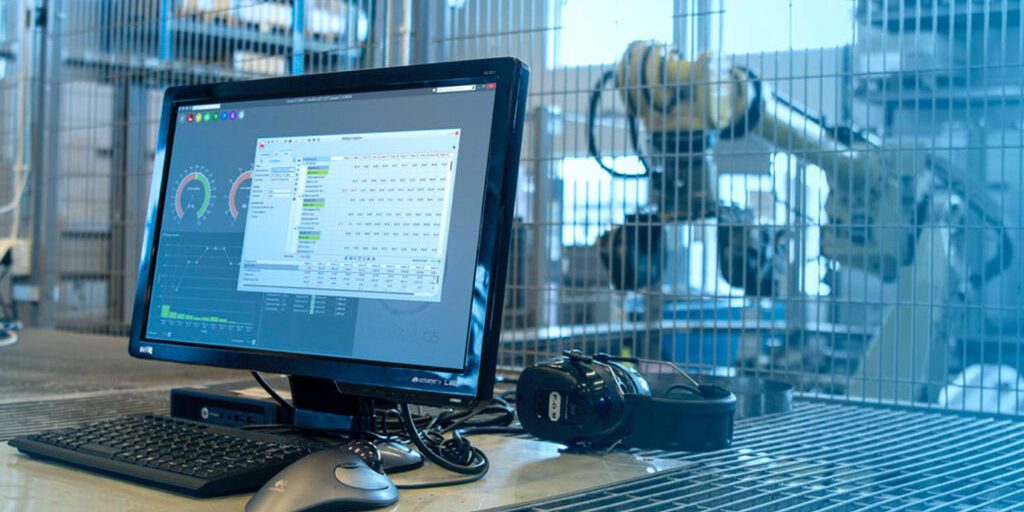Introducing a Progressive Business Solutions (PBS) business case which will illustrate the needs experienced by one of PBS’s clients and how we met the client’s needs.
The client
Our client is the Lithuanian-German capital business group Umega Group, which operates in the metal processing and metal manufacturing spheres. The Umega Group consists of three companies:
- Hennordic – which specialises in contract manufacturing in metal processing. The company performs metal cutting, bending and welding services and focuses on complex manufacturing operations and processing services, which require strong competencies in these technologies. Manufacturing is performed in Germany.
- Umega Agro – manufactures trailers and semitrailers for the agricultural sector and is one of the leaders in this area across the EU. Umega Agro manufactures 50 different types of trailers and semitrailers and are suitable for agricultural companies of various types and sizes. Furthermore, the company also manufactures boilers and offers contractual manufacturing services in the field of metal processing, with its manufacturing performed in Lithuania.
- Snol – manufactures heating furnaces for the industrial and pharmaceutical sectors, as well as medical labs. Manufacturing is performed in Lithuania, with 90 per cent of production exported to the Asian, Middle Eastern, African, North and South American markets. In total, the company exports its products to 70 countries.
Client’s problem and the need for Progressive Business Solutions services
Umega Group made use of an ERP system in its operations, but the previously used ERP system was technologically obsolete and could not ensure the effective operation of businesses in the group, having limited capacities for individual companies to exchange information.
And so, a need emerged to consolidate the businesses’ manufacturing capacities and purchases into a single modern ERP system to distribute manufacturing operations as effectively as possible between the companies in the business group, plan manufacturing capacities, and consolidate all purchases. When seeking a modern and high-quality ERP system, Umega Group took note of Progressive Business Solutions’ cooperation with the developers of the Monitor ERP system.
Progressive Business Solutions:
- Performed an audit of the Umega Group’s companies
- In relation to the audit and the client’s needs, choosing components from the Monitor ERP system that were the most in line with the client’s needs
- Trained the staff at Umega Group in the suitable use of the ERP system
Added value for the client
The Monitor ERP system-generated added value for the client through the following methods:
- Consolidating commodity purchases and purchasing commodities more effectively allowed the reduction of commodities stored in the companies’ warehouses. In addition, the Monitor ERP system allows for the planning of commodity purchases based on the ‘just in time’ principle, which means that purchases are made for the number of commodities needed for current orders. Respectively, this allowed reducing pressure on the business’ operating capital.
- Analysis and evaluation of the real manufacturing situation. The Monitor ERP system allows viewing of the situation in various manufacturing sections in real-time.
- Exchange of mutually comparable data. The entire business operates via a single system, which allows the exchange of data between companies, comparing data, and planning manufacturing and commodity purchases.
- The capacity to effectively make use of the manufacturing capacities of all three companies. The Monitor ERP system allowed the companies to make use of vacant capacities in the business group instead of outsourcing services.
- The option of seeing the real cost of manufacturing. The Monitor ERP system allows viewing the real cost of manufacturing – the client can react and adjust the final pricing for the products.
Client response
Marius Stankūnas, finance director at Umega Group says:
“We were making use of an ERP system before purchasing Monitor ERP. However, we fundamentally felt the need to replace the current ERP system because the previous solution became technologically outdated and no longer met our requirements.
As we examined the market and sought an alternative to the old ERP solution, we took note of Monitor ERP. After reviewing the capacities of the Monitor, we made the decision to adopt precisely this system. We chose Monitor ERP because it is a well-developed and operational ERP solution, and after installing the Monitor system, we noted that work became smoother and more precise, as well as various indicators related to the operation of factories and companies can be easily monitored. In summary, the Monitor ERP system is notable for an excellent cost to benefit ratio.”
